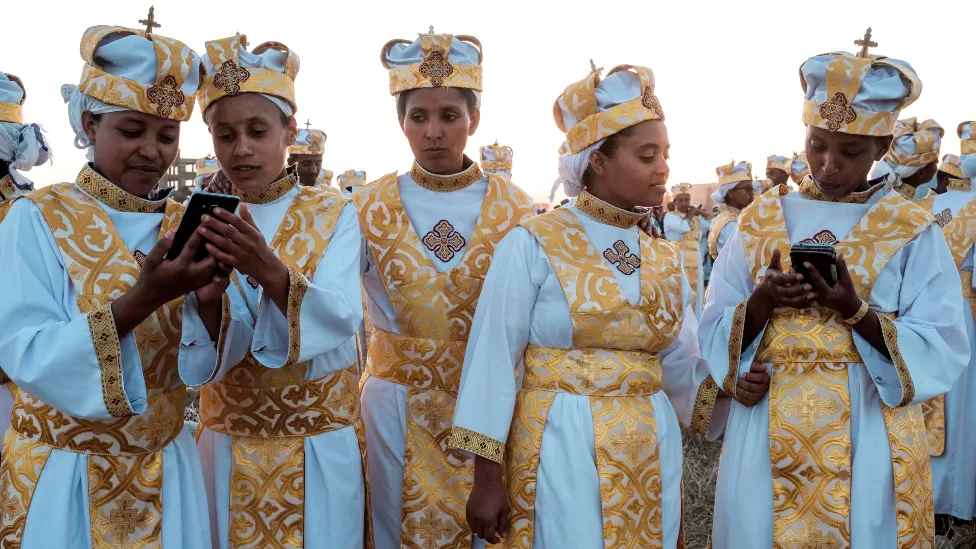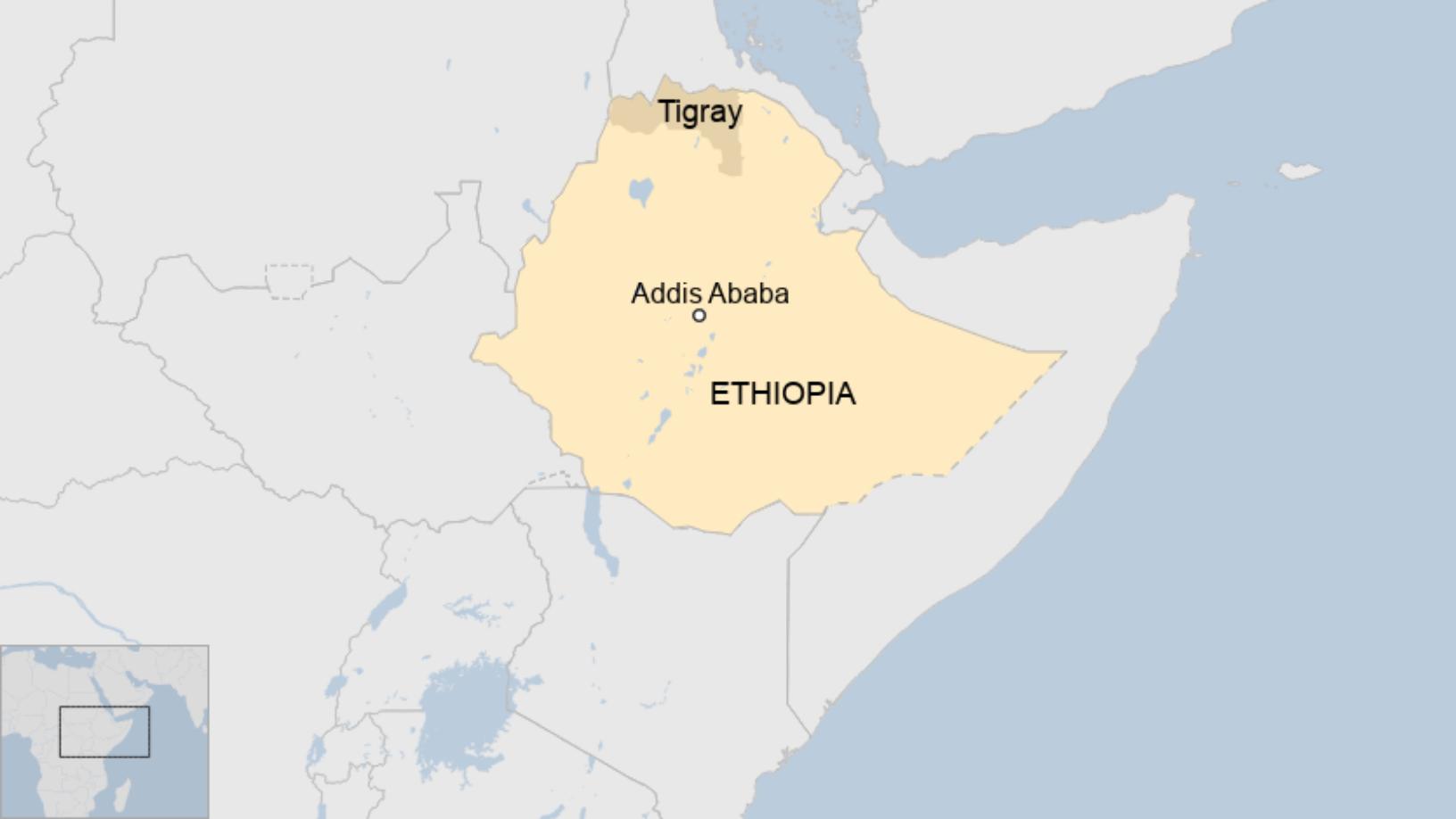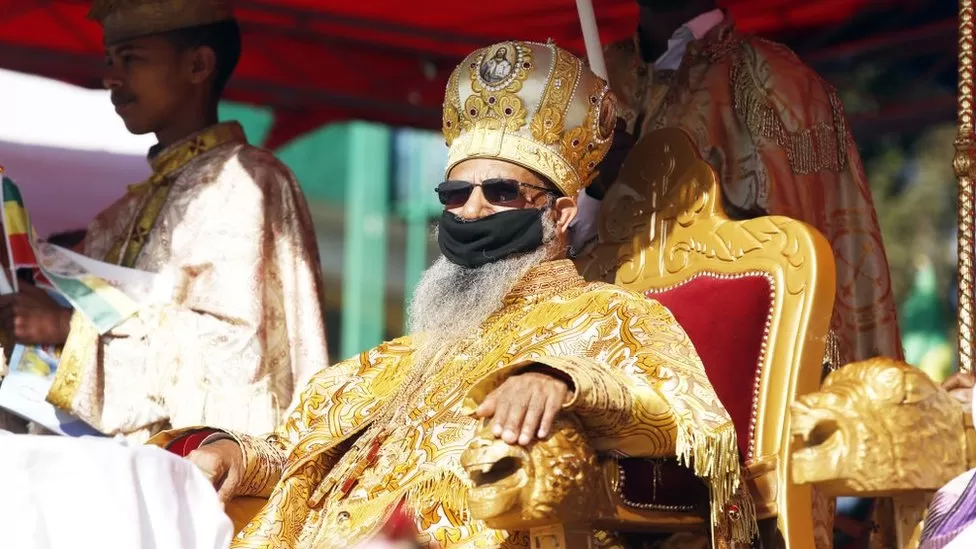Following a split in the popular Orthodox Church, Ethiopia has restricted social media and messaging platforms ahead of rival planned rallies.
The conflict began last month when some clerics accused the main church of ethnic discrimination, which the church denies.
The authorities have banned both sides’ planned protests for Sunday.
Some prominent church supporters are furious, accusing the authorities of supporting the breakaway group.
They had vowed online to defy the ban and hold their rally as a show of strength for the Orthodox Church, one of the oldest in Sub-Saharan Africa and one of the few in the region that existed before European missionaries arrived.

There are fears that the internet will be completely shut down in the coming days. It is a common tactic in the country, which has a population of 115 million people, but it is rarely used in the capital, Addis Abeba.
Some parts of Tigray’s northern region remain without internet access, despite the fact that a brutal two-year conflict ended in November thanks to an African Union (AU) peace deal.
According to Netblocks, a company that monitors internet access, the current restrictions affect Facebook, Messenger, Telegram, and TikTok.
Those with virtual private network (VPN) software can access those sites, but a complete shutdown would prevent them from doing so.
According to the London-based VPN research firm TOP10VPN, demand for VPNs in Ethiopia increased by 1,430% on Friday.
The authorities also closed schools on Friday as tensions rise in the deeply religious society, raising fears that the situation will worsen.
The authorities are also gearing up for the annual AU summit, which will take place next week.
It will be the organization’s first meeting since the Tigray agreement was signed, and the government will be keen to avoid unrest in Addis Abeba, the AU’s headquarters.

What is behind the split?
Three archbishops from Oromia, the country’s most populous region that surrounds Addis Abeba, accused the main church’s leadership of discrimination and a lack of diversity.
They claim that other ethnic groups have dominated the Orthodox Church for far too long. Amharic, for example, is the country’s working language, and the patriarch, its powerful leader, is an ethnic Tigrayan.
According to the dissenting clerics, services should be held in the Oromo language, and while the main church claims this happens, it is not nearly enough.
The archbishops, who were excommunicated after forming a breakaway synod, claim widespread support in Oromia and organized a counter-rally in Addis Abeba.
However, in a blow to the dissenters, a court issued an injunction on Friday prohibiting them and the clergy they have recently appointed from entering Orthodox Church churches.
The fallout could also have a political component.
According to some analysts, the patriarch, Abune Mathias, has been at odds with the authorities since speaking out about the war in Tigray, claiming that genocide was taking place.
Its planned rally was intended to demonstrate the strength of its support. It was enraged after Prime Minister Abiy Ahmed directed his cabinet ministers to stay out of the situation, believing the government should take its side.
Following the rally ban and social media restrictions, Mr Abiy has announced that he will meet with the patriarch, so tensions may ease in the coming days.
The state-linked Ethiopian Human Rights Commission has also weighed in, issuing a statement on Friday accusing security forces of using excessive force against members of the main church.
It mentions extrajudicial killings, beatings, harassment, and arbitrary arrests, and claims that eight people were killed during religious clashes in Shashamane, a town in Oromia, last Saturday.


